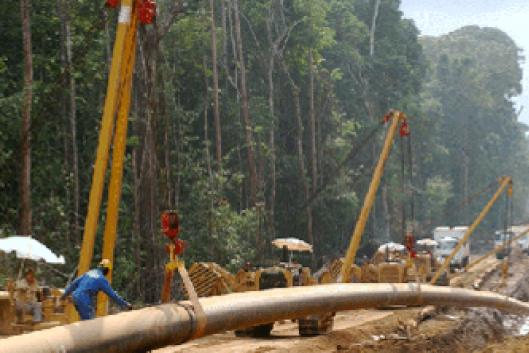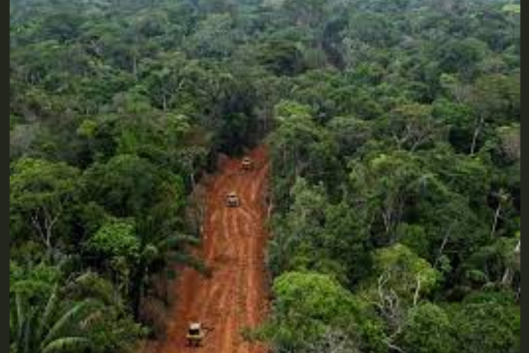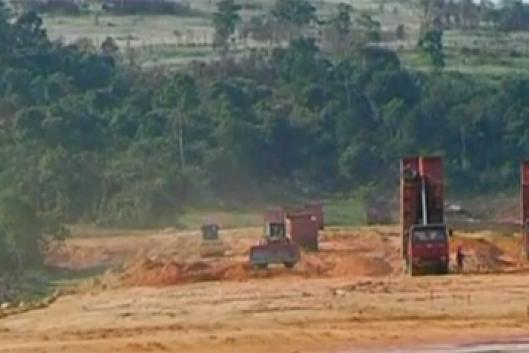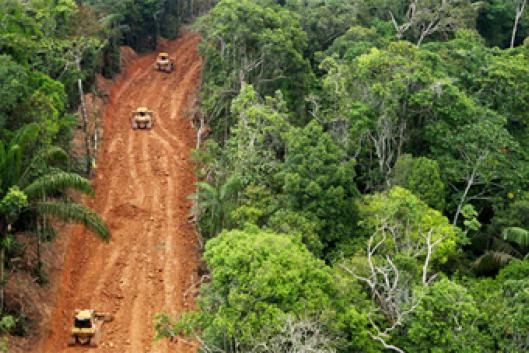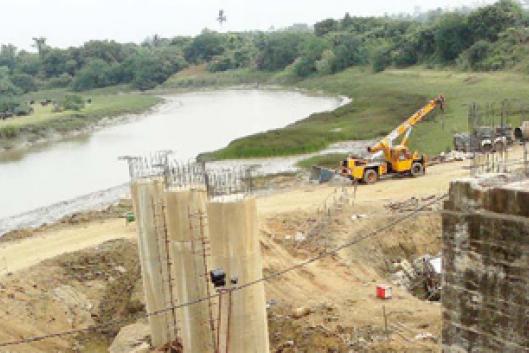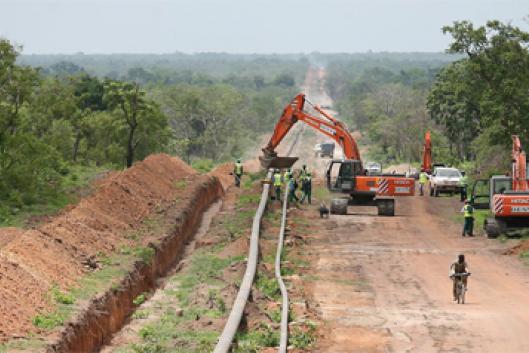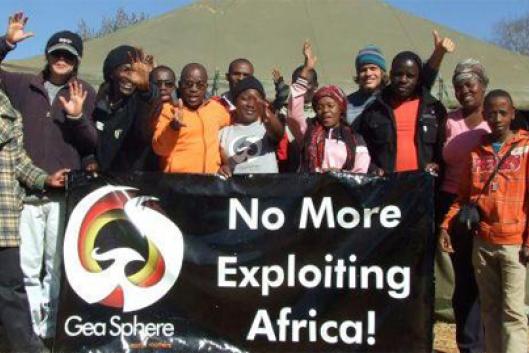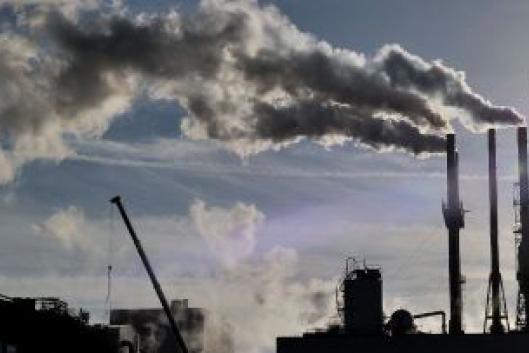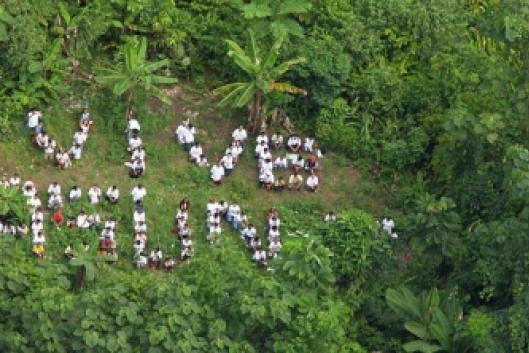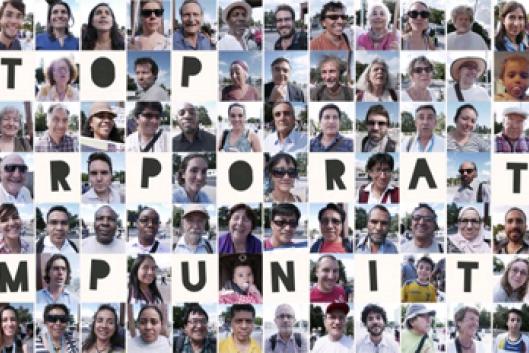If you asked someone to list some of the main causes of rainforest deforestation, they would probably mention, for example, logging, mining, oil and gas extraction, extensive livestock farming, or industrial agriculture. You would be much less likely to hear someone talk about infrastructure projects in sectors like transportation and energy. But these projects are essential for the extraction, storage and/or export of minerals, timber, oil and gas, soybeans, meat, electricity, etc. outside of the forest areas and outside the country, to the world’s large centres of production and consumption.
Bulletin Issue 203 – June 2014
Infrastructure: the backbone for the devastation of forests and territories
WRM Bulletin
203
June 2014
OUR VIEWPOINT
INFRASTRUCTURE: THE BACKBONE FOR THE DEVASTATION OF FORESTS AND TERRITORIES
-
4 July 2014Infrastructure projects, such as the building of highways, railways, ports and airports, installations for the extraction of oil, gas and minerals, or for energy generation, as in the case of hydroelectric mega-dams, are constantly promoted as necessary for “development”. However, far from meeting the needs of local populations, for example, by providing access to electricity, drinking water or sanitation services, these projects are instrumental in facilitating and expanding an economic system aimed at “developing” the continuous extraction of raw materials, primarily for export markets.
-
4 July 2014Cambodia’s biggest national park, Botum Sakor, will now host a 340-km2-infrastructure project led by the real-estate company from northern China, Tianjin Union Development Group. Biodiverse forests will be transformed into a city-sized gambling resort for "extravagant feasting and revelry", and local villagers are already being forced away from their homes.
-
4 July 2014"They consider us the periphery of the periphery"
-
4 July 2014The Asian Development Bank (ADB) is pivotal for creating demand and the conditions for widespread privatization in virtually every sector in the Asia Pacific region, from transportation, energy and urban development to agriculture, water and finance. Based on an infrastructure-led ‘growth’, the corporate sector is aggressively pushed in ADB supported projects through public-private partnerships (PPPs), loans, co-financing and another series of financial instruments.
-
4 July 2014Background Much has been written about the plunder of biodiversity and other natural resources from Africa, in particular where negative social, economic and environmental impacts have resulted; as with indiscriminate clear-cut logging of forests, ruthless mineral extraction, and the conversion of community land into industrial plantations. But despite substantial political change over the past 100 years, Africa’s unequal economic relationship with the global North remains.
PEOPLES IN ACTION
-
4 July 2014The climate negotiations in Bonn, Germany (4-15 June) evidenced once again that climate change negotiations are being dominated by irresponsible states, polluters and corporations that only care about current operations and the furtherance of profits. The increase in fossil fuel exploitation and new carbon markets are destroying forests, soil, wetlands, rivers, mangroves and oceans, as well as the financialization and privatization of ecosystems and nature on which our lives depend.
-
4 July 2014Letter to the Inter-American Commission on Human Rightsurging it to call on the government of Ecuador to fully comply with the precautionary measures established for the protection of the life and personal integrity of members of Indigenous Peoples Living in Isolation in Ecuador, particularly the Tagaeri and Taromenane indigenous groups, who form part of the Waoroni people, as well as the territories they inhabit. The signatories of the letter express their extreme concern over the decision of the government of Ecuador to expand oil drilling activities within Yasuní National Park, in the pristine area of Blocks 31 and ITT, and consequently call for a halt to the activities being carried out in this area.
-
4 July 2014Mapuexpress (in Spanish) After more than five years of hard-fought struggle against the HidroAysén energy mega-project, which would have involved the building of five huge dams on rivers in the Patagonia region, a Chilean government ministerial committee voted to reject this destructive project, saving Patagonia from the hydroelectricity imposed by transnationals and supported by governments. http://mapuexpress.org/hidroyasen-se-hunde-en-comite-de-ministros-por-fuerte-presion-social/
-
4 July 2014Social movements celebrate historic vote at the United Nations Human Rights Council: UNHRC moves away from voluntary standards and towards a binding treaty to prevent transnational corporations’ human rights violations. After weeks of negotiation from Northern countries to avoid the creation of an intergovernmental working group to discuss binding human rights obligations for Transnational Corporations, the UNHRC voted on a resolution to initiate this process, with 20 votes in favour, 14 against and 13 abstentions. http://www.stopcorporateimpunity.org/?p=5833
-
4 July 2014The Permanent Peoples Tribunal (PTT) was held with social movement from all over the world and the Peoples' Treaty on Transnational Corporations (TNCs) was launched while member states of the UN Human Rights Council were debating in Geneva rules for TNCs. The PPT held on June 23, 2014, considered 12 cases in the mining, oil and water sectors, providing evidence that the operations of TNCs produce irreparable damage to the communities, by violating the human rights of people and generating impacts on nature and the environment. http://www.stopcorporateimpunity.org/?p=5777 The treaty can be read here:
RECOMMENDED
-
4 July 2014Korinna Horta, in UNRID, The Politics of Resource Extraction. The World Bank-supported Chad-Cameroon Oil & Pipeline project would leverage a much larger private sector investment by the consortium led by ExxonMobil. This article shows how private-public partnerships (PPPs) mostly leave local populations living along the pipeline, including Cameroon's indigenous Pygmy communities, further impoverished, with the forests from where they obtain the bulk of their livelihoods destroyed. https://urgewald.org/sites/default/files/the_politics_of_resource_extraction.pdf
-
4 July 2014Acción Ecológica (in Spanish, with English subtitles) Neither free, nor prior, nor informed. An independently produced video exposes the so-called prior consultation of indigenous peoples conducted during the 11th Oil Round (an auction of oil blocks in the Amazon region) in Ecuador, revealing its irregularities and the silencing of the voices of indigenous communities. A clear example of how the distortion and abuse of the rights of indigenous peoples are used to justify the implementation of infrastructure mega-projects. http://www.accionecologica.org/petroleo/politicas-petroleras/1740-la-consulta-inconsulta-english-subtitles
-
4 July 2014FSC Watch . In July 2010, Suzano Pulp and Paper bought the biotechnology company FuturaGene, which for the past 8 years has been carrying out field trials of genetically engineered eucalyptus. In January 2014, FuturaGene applied to Brazil’s National Technical Biosafety Commission (CTNBio) for approval to plant GE trees on a commercial scale. Suzano is FSC-certified and plans to plant GE trees on a commercial scale. http://fsc-watch.com/2014/06/06/suzano-plans-commercial-planting-of-ge-trees-will-fsc-dissociate-from-suzano/
-
4 July 2014Small farmers and indigenous organizations around the world are confronting a deep reduction of the world’s farmland and the processes of displacement from the fields. Even though a significant amount of experts keep claiming that the biggest part of the land is still in the hands of farmers and indigenous, this study shows that over 90% of the farmers around the world control less than a quarter of the world’s agricultural land. http://www.grain.org/article/entries/4929-hungry-for-land-small-farmers-feed-the-world-with-less-than-a-quarter-of-all-farmland
-
4 July 2014The Corner House. This report argues that those looking to achieve a greener and more democratic energy future, should see energy and finance as changing political processes. How can movements make the strongest alliances for the needed changes? Where are the destructive, currently-dominant energy and finance regimes most vulnerable? Both inquiries can be helped by an understanding of how energy and finance have been constructed and contested over two centuries of stormy transformations in industry, livelihood and exploitation. http://www.thecornerhouse.org.uk/resource/energy-work-and-finance
